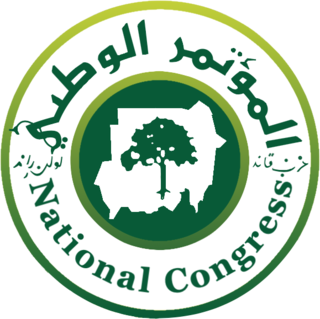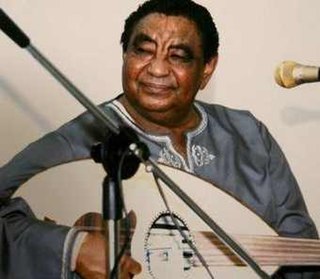
Currently, the politics of Sudan takes place in the framework of a federal provisional government. Previously, a president was head of state, head of government, and commander-in-chief of the Sudanese Armed Forces in a de jure multi-party system. Legislative power was officially vested in both the government and in the two chambers, the National Assembly (lower) and the Council of States (higher), of the bicameral National Legislature. The judiciary is independent and obtained by the Constitutional Court. However, following a deadly civil war and the still ongoing genocide in Darfur, Sudan was widely recognized as a totalitarian state where all effective political power was held by President Omar al-Bashir and his National Congress Party (NCP). However, al-Bashir and the NCP were ousted in a military coup which occurred on April 11, 2019. The government of Sudan was then led by the Transitional Military Council or TMC. On 20 August 2019, the TMC dissolved giving its authority over to the Sovereignty Council of Sudan, who were planned to govern for 39 months until 2022, in the process of transitioning to democracy. However, the Sovereignty Council and the Sudanese government were dissolved in October 2021.

Omar Hassan Ahmad al-Bashir is a Sudanese former military officer and politician who served as the seventh head of state of Sudan under various titles from 1989 until 2019, when he was deposed in a coup d'état. He was subsequently incarcerated, tried and convicted on multiple corruption charges. He came to power in 1989 when, as a brigadier general in the Sudanese Army, he led a group of officers in a military coup that ousted the democratically elected government of prime minister Sadiq al-Mahdi after it began negotiations with rebels in the south; he subsequently replaced President Ahmed al-Mirghani as head of state. He was elected three times as president in elections that have been under scrutiny for electoral fraud. In 1992, al-Bashir founded the National Congress Party, which remained the dominant political party in the country until 2019. In March 2009, al-Bashir became the first sitting head of state to be indicted by the International Criminal Court (ICC), for allegedly directing a campaign of mass killing, rape, and pillage against civilians in Darfur. On 11 February 2020, the Sudanese government announced that it had agreed to hand over al-Bashir to the ICC for trial.

Jaafar Muhammad an-Nimeiry was a Sudanese politician who served as the fourth head of state of Sudan from 1969 to 1985, first as Chairman of the National Revolutionary Command Council and then as President.

The National Congress Party was a major political party that dominated domestic politics in Sudan from its foundation until the Sudanese Revolution.

Sudan University of Science and Technology is one of the largest public universities in Sudan, with ten campuses in Khartoum state. The main campus is located in the so-called Al Mugran area of Khartoum, the confluence of the White Nile and the Blue Nile.

The Eastern Front is a coalition of rebel groups operating in eastern Sudan along the border with Eritrea, particularly the states of Red Sea and Kassala. The Eastern Front's Chairman is Musa Mohamed Ahmed. While the Sudan People's Liberation Army (SPLA) was the primary member of the Eastern Front, the SPLA was obliged to leave by the January 2005 Comprehensive Peace Agreement that ended the Second Sudanese Civil War. Their place was taken in February 2004 after the merger of the larger Beja Congress with the smaller Rashaida Free Lions, two tribal based groups of the Beja and Rashaida people, respectively. The Justice and Equality Movement (JEM), a rebel group from Darfur in the west, then joined.

The Beja Congress is a political group comprising several ethnic entities, most prominently the Beja, of the eastern region of Sudan. It was founded in 1957 by Dr. Taha Osman Bileya together with a group of Beja intellectuals, as a political platform for the politically and economically marginalized Beja people. According to the "Black Book", an analysis of Sudanese regional political representation published underground in the late 1990s by Darfur Islamist followers of Hassan al-Turabi, Eastern Sudan has been conspicuous since its independence for its political and economic marginalization. This part of Sudan had fewer ministers and representatives than other parts of the country in the civil and military branches of the central government, as well as having among the lowest rates of education and access to health services in the country.

Mohammed Osman Hassan Salih Wardi, also known as Mohammed Wardi, was a Nubian Sudanese singer, poet and songwriter. Looking back at his life and artistic career, Sudanese writer and critic Lemya Shammat called him an "inspirational figure in Sudanese music and culture, whose prolific talent and massive contribution remains unsurpassed in Sudan."

The Central Bank of Sudan is the central bank of Sudan. The bank was formed in 1960, four years after Sudan's independence. It is located in the capital Khartoum.
Bank Audi is a Lebanon-based universal bank and financial services company headquartered in Beirut, offering financial products and services in personal banking, business banking, private banking and Treasury and Capital Markets segments.

Mohamed Hag Ali Hag el HassanOMRI GCONMC FAAS FIAS FTWAS is a Sudanese-Italian mathematician and physicist who co-founded numerous scientific councils. He is currently the President of The World Academy of Sciences.

Mohamed Hamdan Dagalo, generally referred to mononymously as Hemetti, Hemedti, Hemeti or Hemitte, is a Sudanese general from the Mehriya tribe of the Awlad Mansur sub clan in Darfur. Dagalo previously served as the Deputy Chairman of the Transitional Military Council (TMC) following the 2019 Sudanese coup d'état. On 21 August 2019, the TMC transferred power to the civilian–military Transitional Sovereignty Council, of which Hemetti is a member. Under Article 19 of the August 2019 Draft Constitutional Declaration, Hemetti and the other Sovereignty Council members were to be ineligible to run in the 2022 Sudanese general election.

The Sudanese transition to democracy is a series of political agreements among Sudanese political and military forces for a democratic transition in Sudan that began in July 2019. Omar al-Bashir overthrew the democratically elected government of Sadiq al-Mahdi in 1989 and was himself overthrown in the 2019 Sudanese coup d'état, in which he was replaced by the Transitional Military Council (TMC) after months of sustained street protests. Following further protests and the 3 June Khartoum massacre, TMC and the Forces of Freedom and Change (FFC) alliance agreed on 5 July 2019 to a 39-month transition process to return to democracy, including the creation of executive, legislative and judicial institutions and procedures.

The Transitional Sovereignty Council is the collective head of state of Sudan, formed on 20 August 2019, by the August 2019 Draft Constitutional Declaration. It was dissolved by Chairman Abdel Fattah al-Burhan in the October 2021 Sudanese coup d'état and reconstituted the following month with new membership, effectively changing it from a unity government to a military junta.
Banking in Sudan covers the history, development and structure of banking in the Sudan. From the inheritance of the banking system from the Anglo-Egyptian Sudan to the establishment of the Sudan central bank in 1959 and development of Islamic banking in the mid 1970s.

Ahmed Mohamed El Hassan FRCP FTWAS was a Sudanese professor of pathology.

The Sudanese National Academy of Sciences (SNAS) is a non-governmental organisation based in Khartoum, Sudan, that aims to promote the growth of the science and research sector in Sudan through collaboration in areas of education, science, technology, and research.













